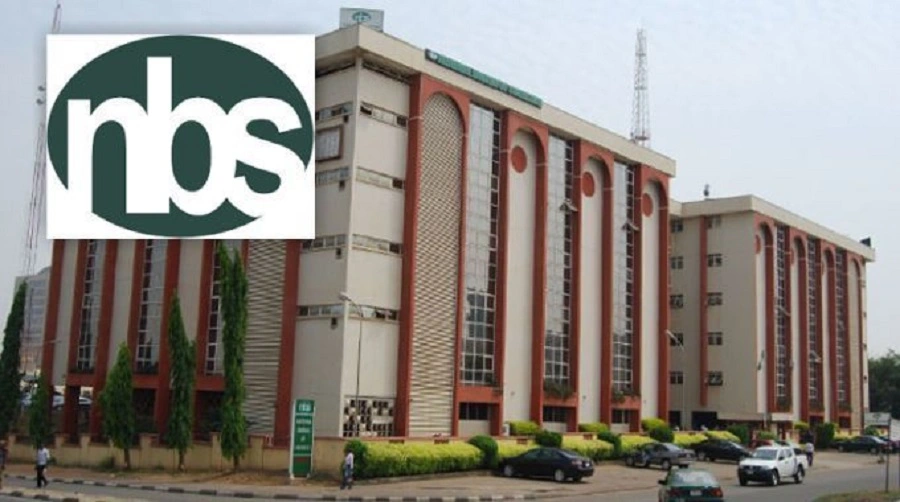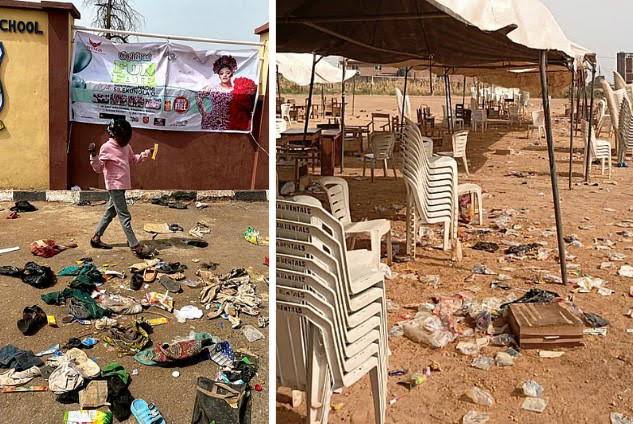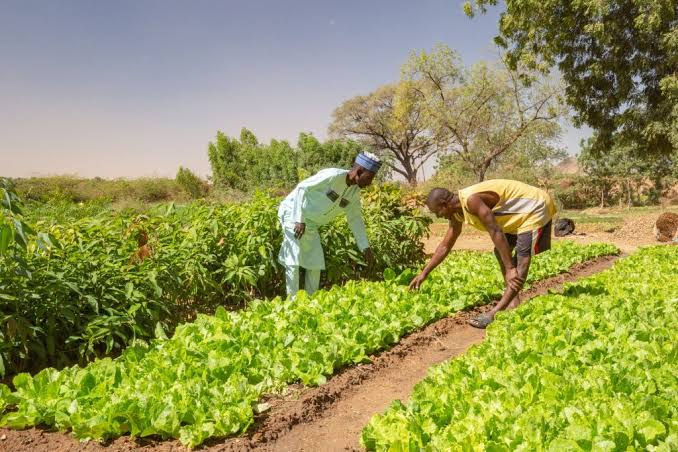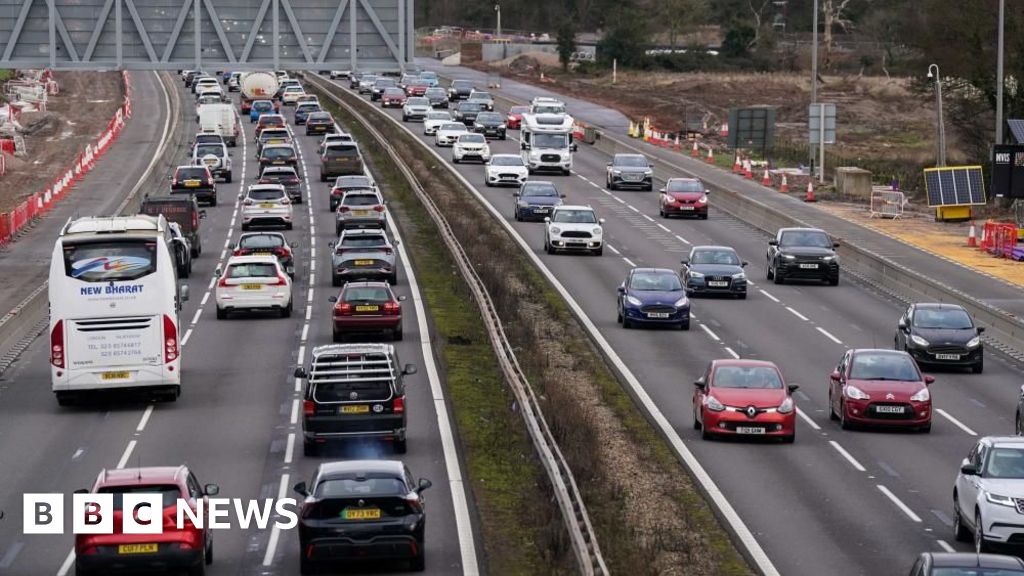Abubakar Sani’s blank face masked his mood and made it difficult to decipher the stories his eyes had to tell. From Gwashi, a village in Bukkuyum Local Government Area (LGA) of Zamfara State, where he resides, he had watched the evolution of the bandits terrorising the Northwestern part of Nigeria.
At first, he said, the attackers didn’t kill. “They just shot in the air and looted stores and shops. Weeks later, they would return,” he told PREMIUM TIMES in September.
The bandits also stole livestock whenever they attacked. At one point, they began to kidnap people and demand ransom. Gradually, they instilled fear in Gwashi and adjoining communities, altering the usual order of activities.
One of the alterations was in the only primary school in the village, which Mr Sani heads. Four of the seven teachers who live in the local government headquarters in Bukkuyum stopped showing up at school over fear of attacks. Less than a year later in 2021, the school was shut.
“When they kidnapped some students in Kebbi (another state in the region), we started getting scared, so we decided to shut the school down for things to cool off before we resumed,” he said.
The school was still shut in September when PREMIUM TIMES interviewed him in Anka LGA of the state.
 Abubakar Sani witnessed the pupil population in his school decrease from 250 to 119 in 2021 as banditry heightened. [Picture Credit: Qosim Suleiman]
Abubakar Sani witnessed the pupil population in his school decrease from 250 to 119 in 2021 as banditry heightened. [Picture Credit: Qosim Suleiman]
Similar stories abound in rural Zamfara communities affected by banditry, PREMIUM TIMES found through interviews and research covering several local government areas and spanning weeks between September and October.
Nigerians need credible journalism. Help us report it.
Support journalism driven by facts, created by Nigerians for Nigerians. Our thorough, researched reporting relies on the support of readers like you.
Help us maintain free and accessible news for all with a small donation.
Every contribution guarantees that we can keep delivering important stories —no paywalls, just quality journalism.
Speaking to residents, teachers, principals and headmasters, PREMIUM TIMES also compiled a list of more than 60 schools –like that of Gwashi– currently shut due to the fear of bandit attacks in six LGAs.
In Anka, Bukkuyum, Maru, Shinkafi, Zurmi and Tsafe LGAs, the situation has robbed thousands of children of their first opportunity at education.
Zamfara State already has a fractured basic education system, possessed one of the highest rates of out-of-school children in Nigeria and was considered an educationally less developed state. “(But) the banditry activities have compounded the already existing limited access and poor quality of teaching and learning in rural areas,” two researchers at the Federal University Gusau, Zamfara State, noted in a study of the effect of banditry on educational development.
“Many parents are afraid to enrol their children in secondary schools, especially in the rural areas affected by the incidences of frequent attacks and kidnapping of secondary school students.”
| 1 | Makakari primary school | Adafka primary school | Dangulbi primary school | Kucire Gdss | Jabanda primary school |
| 2 | Gobirawa primary school | Dangurumfa primary school | Dankurmi primary school | Model primary school kucire | GSS moriki |
| 3 | Galadi, Tarinjaya, primary school | Gana primary school | Bingi primary school | Yandoto primary school | Ggss moriki |
| 4 | Jarkuka Primary School | Gando primary school | Kanoma primary school | Bilbis primary school | Magarya primary school |
| 5 | Bawar daji primary school | GGDSS Bukkuyum | Kuyambana primary school | GSS Bilbis | Sarkin Zamfara primary zurmi |
| 6 | Abare primary school | Government science secondary school Bukkuyum | Sarkin kudu primary school Dansadau | Tazame primary school. | Yammayaka primary school |
| 7 | Kawaye primary school | Gurusu primary school | Tungar Ardo primary school | Dauran primary school | |
| 8 | Government Secondary School Waramu | Gwashi primary school | Dan ma,aji primary school | Mashema primary school | |
| 9 | Sunke primary school | Mallamawa primary school | Matunji primary school | Birnin tsaba primary school. | |
| 10 | Dawon jiya primary school | Nasarawa primary school | Gsss Dansadau | ||
| 11 | Tungar Gwarno primary school | Zarummai primary school | Gdss Dangulbi | ||
| 12 | Tungar Mai Rakumma primary school | Zugu primary school | |||
| 13 | Barikushe primary school | ||||
| 14 | Dan hayin Bawa primary school | ||||
| 15 | Gadar manya primary school | ||||
| 16 | Gargam primary school | ||||
| 17 | Government Secondary School Barayar zaki | ||||
| 18 | Government Secondary School Wuya | ||||
| 19 | Kadaddaba primary school | ||||
| 20 | Kirsa primary school | ||||
| 21 | Matseri primary school | ||||
| 22 | Tungar dutsi primary school | ||||
| 23 | Tungar liman primary school | ||||
| 24 | Yarmatankari primary school | ||||
| 25 | Zaga primary school |
Perpetual casualty of conflicts
In Northwest Nigeria, where Zamfara is situated, bandits have terrorised communities by raiding and carting away residents’ belongings, kidnapping for ransom, using people for forced labour and killing those who resisted. This has been on for over a decade as the authorities struggle to contain the situation. Banditry has altered daily life and every social and economic development aspect in the communities.
Education, a perpetual casualty of conflicts, has also suffered, with more children of school age outside of the classroom. With their schools shut, they are losing their first chance at education. Teachers, most of whom live outside of rural communities, cannot show up at schools for fear of attacks, those interviewed told this newspaper.
Between 2020 and 2021, the bandits abducted over 1,700 students and teachers in a wave of over 20 attacks, according to data compiled by SBM Intelligence. The situation is believed to have contributed to the country’s number of out-of-school children, now over 20 million, according to the United Nations Educational, Scientific and Cultural Organisation (UNESCO) —making it one of the highest in the world.
Decreasing enrolment
Nafisa Isa has a widely different schedule nowadays. She and her three school-age children — Aliyu, 8; Isa, 7, and Farida, 5 — now sleep longer. They no longer have to wake up early for school. In Abare, a village in Anka LGA where she lives, children no longer have to.
Mrs Isa teaches at the only primary school in the village. But persistent bandit attacks heightened fear in the minds of parents and teachers, gradually crippling basic education in the town. Fearing for their lives, parents stopped sending their children and wards to school, and teachers stopped returning to school.
“It’s been a year and three months since the school was forced to shut down,” she told PREMIUM TIMES in September, explaining that it happened almost organically.
Aliyu, her first son, is now enrolled at a carpentry shop where he learns how to make furniture. His siblings spend their day playing with other kids in the area. “There’s nothing like going to school,” she said.
 For more than a year, Nafisa Isa’s three school-age children have not been in a classroom. [Picture Credit: Qosim Suleiman.]
For more than a year, Nafisa Isa’s three school-age children have not been in a classroom. [Picture Credit: Qosim Suleiman.]
Muhammad Abdullahi, a lecturer and researcher at Federal University Gusau, said the unfolding situation has a multifaceted disadvantage for Zamfara state.
Mr Abdullahi, one of the researchers in a study of the effect of banditry on school enrolment, said the communities are not only suffering at the moment, but their future is also bleak. He noted that the development of any society is championed by the young and educated, and he said these communities need to be improved as the growing population has been made redundant at home.
“One of the facets of development is to have a youthful population,” he said in a telephone interview. “Now banditry is making the future youth redundant at home. So it has a multifaceted effect on the state.”
He said the younger population “may endanger the state again because instead of doing something that will assist in development, they may be engaging in what will retrograde the state.”
Attacks on schools
Banditry, which Mr Abdullahi said was also an effect of lack of education, didn’t start affecting education until the bandits started drawing inspiration from Boko Haram, the Islamist terrorists active in the country’s North-east. In 2014, Boko Haram shot itself into global notoriety when it abducted over 200 school girls from the Government Girls Secondary School, Chibok, Borno State – an action unprecedented in the history of Nigeria.
Borrowing a leaf from the Boko Haram tactics, the bandits staged the first mass abduction of pupils in Kankara in neighbouring Katsina State in December 2020. Riding on motorcycles, they took more than 300 students from Government Science Secondary School, Kankara. The students spent at least seven days with the bandits in the forest before the government negotiated their release. It didn’t take long before other bandit groups tried similar abduction.
In February 2021, for instance, bandits raided two schools within 10 days. On 17 February 2021, they abducted 41 pupils and teachers from the Government Science College Kagara, Niger State. On 26 February 2021, they raided the Government Girls Science Secondary School in Jangebe, Zamfara State and abducted over 300 schoolgirls.
The shutting of schools in volatile communities became a norm in the region. The state government shut down over 70 schools in 2021 after several attacks on schools. However, many more schools were shut due to fear of attacks, some school heads told PREMIUM TIMES.
Back to school? ‘No’
Hadiza Adamu is still haunted by the experience of having a child kidnapped. Her daughter, Hafsat, now 19, was one of the school girls kidnapped from their dormitories in Jangebe in February 2021.
“It was a harrowing experience,” she said, describing the two weeks the students were away with the bandits. “I cried so much. I was so scared. I thought about many things that could go wrong. But I’m happy they came back. The government tried in that aspect.”
Hafsat has now re-enrolled at the Government Girls Unity Secondary School, Kwatarkwashi.
“I didn’t want her to go back to boarding school, but I was convinced to allow her to go,” she added.
However, some of her schoolmates did not return to school.
 After her abduction in 2021, Raliya Abbas got married and quit schooling
After her abduction in 2021, Raliya Abbas got married and quit schoolingFor instance, Raliya Abbas, 20, is already in the third year of her marriage. She quit school after the abduction. “I didn’t want to experience that again, so I got married,” she said.
However, she would love to go back to school again because her community needs nurses and midwives.
“It’s simply because of childbirth,” she said. “We don’t have skilled midwives. That’s why I wish to go back to school.”
Safe School Declaration
The fear of bandits forced the Government Day Secondary School (GDSS), Gwashi in Bukkuyum LGA, to shut down and reopen four times in the last three years.
In the last week of September, two weeks after schools across the country resumed for a new session, Garba Bukkuyum, the principal, was unsure whether his school would resume.
“Sometimes we would be in the classrooms and hear gunshots and many motorcycles zooming past us,” Mr Bukkuyum said. “There’s no way you won’t be scared.”
Meanwhile, Bello Ahmad, the Principal of Government Day Secondary School (GDSS) Lugga, Maru LGA, has resigned to fate.
When PREMIUM TIMES approached him one Tuesday afternoon in October, he said it was the first time anyone was asking him about the closure of the school he heads in more than three years. The school was shut in 2021 after the security situation deteriorated.
“The truth is, the situation is getting better around here,” he said. But there’s no date for resumption, as conversations about reopening the school have yet to begin.
In 2019, former President Muhammadu Buhari signed the Safe Schools Declaration — an expression of commitment to protecting students, teachers, and schools from attacks. Two years later, in 2021, the Nigerian government developed the National Policy on Safe Schools and Violence-Free Schools (NPSSVFS). The policy outlines guidelines to keep schools safe for students.
 Garba Bukkuyum’s school was shut and reopened four times in three years. [Picture Credit: Qosim Suleiman]
Garba Bukkuyum’s school was shut and reopened four times in three years. [Picture Credit: Qosim Suleiman]
The report assesses the states based on the six areas of the Minimum Standards for Safe Schools (MSSS): strong school systems, violence against children, natural hazards, conflict, everyday hazards, and safe school infrastructure.
According to the report, more than 70 per cent of schools in Zamfara State do not meet the minimum safety standards for schools in the safe school policy.
It added that Zamfara is “the only state scoring below 50 per cent across all six result areas.”
The report noted an increase in school infrastructure “between mid- and end 2023, notably in making schools and learning centres more child-friendly.”
It, however, added that “despite these gains, scores remain critically low across all areas, especially in Conflict, Everyday Hazards, and Safe School Infrastructure, signalling an urgent need for comprehensive interventions in Zamfara.”
READ ALSO: INVESTIGATION: Abandoned barite mines poisoning people in Nigerian communities
Holding unto the last shred in ‘bandits depot’
Elsewhere in Barayar Zaki, Abdulrazak Musa is one of those holding on to the last shred of the education fabric at the Government Day Secondary School (GSS) Barayar Zaki. During this interview, which lasted more than 30 minutes in September, Mr Musa had more to say than time permitted. He had seen and had so much to tell.
“We are usually the first to know when the bandits arrive,” he began telling the story of Barayar Zaki, a community he said is also known as ‘bandits depot’.
 Abdulrazak Musa became an acting principal after the substantive principal stopped showing up because of fear of attacks. [Picture Credit: Qosim Suleiman]
Abdulrazak Musa became an acting principal after the substantive principal stopped showing up because of fear of attacks. [Picture Credit: Qosim Suleiman]
A lot has changed since he started working there in 2015. When he joined, there were more than 15 teachers and over 600 students. “There are less than 200 students now,” he said. Only five teachers still show up.
In 2017, the school principal died. (His death is not related to banditry). Mr Musa said another principal was posted to the school, but he didn’t show up because of insecurity. “That’s why I am acting principal,” he said. “As you can see, I am young.”
Mr Musa has been heading the only secondary school in the community for five years. He believes that is his contribution to salvaging the failing education system.
“Education here is falling apart, but we are trying to hold it together,” he said.
Support PREMIUM TIMES' journalism of integrity and credibility
At Premium Times, we firmly believe in the importance of high-quality journalism. Recognizing that not everyone can afford costly news subscriptions, we are dedicated to delivering meticulously researched, fact-checked news that remains freely accessible to all.
Whether you turn to Premium Times for daily updates, in-depth investigations into pressing national issues, or entertaining trending stories, we value your readership.
It’s essential to acknowledge that news production incurs expenses, and we take pride in never placing our stories behind a prohibitive paywall.
Would you consider supporting us with a modest contribution on a monthly basis to help maintain our commitment to free, accessible news?
TEXT AD: Call Willie - +2348098788999

















 English (US) ·
English (US) ·